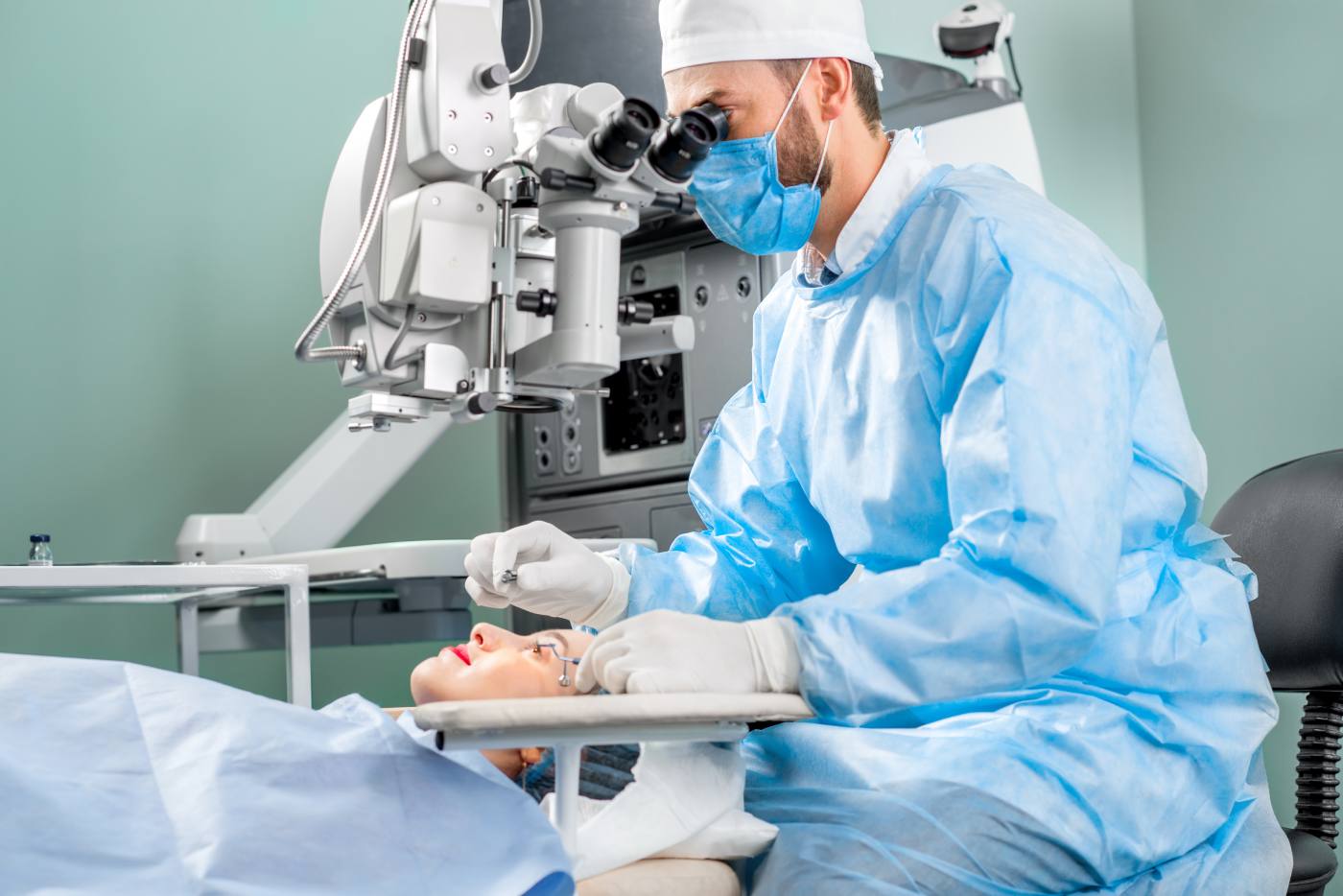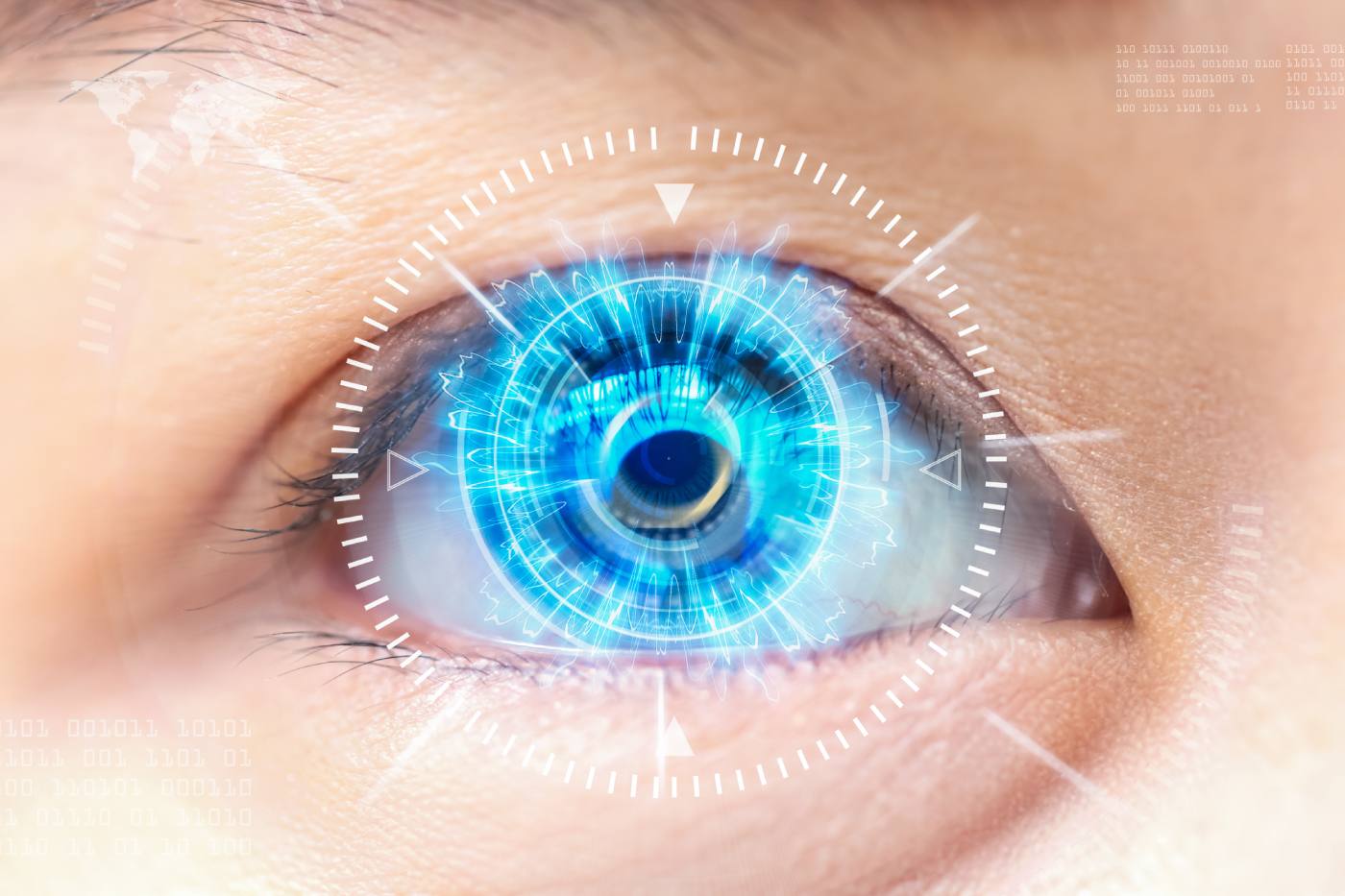Cataract Surgery Co-Management
Cataracts are a disease of the eye that results in the clouding of the lens of the eyeball. Cataracts prevent clear images from appearing on the eye’s retina; causing mild, moderate, even severe blurred vision.
Typically, an eye disorder associated with aging, over half of the people in America over age 80 have either had a cataract or cataract surgery. Cataracts generally occur later in life as the lens structure within the human eye changes and gets older.

About
What to Expect
During the evaluation of your eye health, we will carefully examine your lens for signs of cataract formation. If a cataract is noticed and the clouding is causing visual disruption, the optometrist will refer you to a trusted and respected surgeon for surgery, which is the only known cure for cataracts. Nash Eyecare will be there for you providing pre- and post-cataract surgery care.
What If I Need Cataract Surgery?
Cataract surgery is the removal of the natural lens of the eye (also called “crystalline lens”) that has developed an opacification, which is referred to as a cataract. Metabolic changes of the crystalline lens fibers over the time lead to the development of the cataract and loss of transparency, causing impairment or loss of vision. During cataract surgery, a patient’s cloudy natural lens is removed and replaced with a synthetic lens to restore the lens’s transparency.
Following surgical removal of the natural lens, an artificial intraocular lens implant is inserted (eye surgeons say that the lens is “implanted”). Cataract surgery is generally performed by an ophthalmologist (eye surgeon) in an ambulatory (or outpatient) setting, in a surgical center or hospital, using local anesthesia (either topical, peribulbar, or retrobulbar), usually causing little or no discomfort to the patient. Well over 90% of operations are successful in restoring useful vision, with a low complication rate. Day care, high volume, minimally invasive, small incision phacoemulsification with quick post-op recovery has become the standard of care in cataract surgery all over the world.
Cataract
Frequently Asked Questions
What are the symptoms?
Some of the symptoms that cataracts are developing are: decreasing, blurred or double vision, difficulty seeing at night or seeing halos in bright light, difficulty with depth perception, seeing colors, and/or difficulty reading. The development of cataracts is sometimes unavoidable as it can be caused simply by age, or hereditary conditions, but it can also be caused by eye trauma, diabetes, long term use of some medications like oral steroids, ultraviolet radiation, and smoking.
Who is at risk?
As you age past 60, you will more than likely develop cataracts. More than 50 percent of people do, and some develop them even younger than that. It is quite normal and very treatable with corrective surgery in one or both eyes, depending on where the cataracts develop.
How are cataracts diagnosed?
If you are experiencing some of the symptoms of a cataract, you should visit your eye doctor so he or she can perform a contrast sensitivity test. This will determine the degree to which the cataract is affecting your vision and will determine how soon you should treat your cataract.
How are cataracts treated?
Once a cataract starts altering your vision enough to affect everyday activities, it is probably time to treat it, since it will only get worse. Currently, the only medical treatment for cataracts is to have them surgically removed.
Surgically removing a cataract is usually done on an outpatient basis and involves making an incision into the capsule of the cataractous lens to remove the lens. A topical or local anesthetic will be applied, as well as dilating eye drops and/or a sedative, to make the operation painless. The doctor will choose to physically remove the cloudy lens, or to break it up using high frequency sound waves, and then extract the lens particles using suction. In either case, the lens is replaced with a flexible plastic lens that will remain permanently. These replacement lenses can be adjusted to correct other previous vision deficiencies as well. Cataract surgery incisions are typically self-sealing and do not require sutures. When stitches are occasionally required for healing, they can be easily and painlessly removed in the office.

Our Office
Email Us
Hours
Tuesday: 8am-12pm & 1pm-5pm
Wednesday: 8am-12pm & 1pm-5pm
Thursday: Closed
Friday: 8am-12pm & 1pm-5pm
Saturday: 8am - 1pm
Sunday: Closed
We are closed for lunch each business day from 12pm-1pm (except Saturday)
